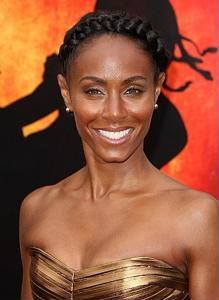
Popular rapper Missy Elliot revealed to the public recently that she has been battling Grave's disease. This is an endocrine disorder that over-activates the thyroid and may increase anxiety, irritability, metabolism and affect sleep.
Although not to the same extent as Missy Elliot faces with Grave's disease, the skin of ethnic women has higher sensitivity to any type of change including that caused by hormones as well as emotional and environmental triggers.
Missy Elliot is determined to make a come back and has made a commitment to living a healthier lifestyle that includes weight loss. Hormonal disorders can wreak havoc on the skin, but even healthy women have to battle similar hurdles. High quality ethnic skin products are a good solution not just to those with hormonal disorders but also to all ethnic women.
According to African-American dermatologist Dr. Susan Taylor, brown skin is very susceptible to developing uneven skin tones that may be brought on by stress or other health issues. In addition, darker skin may be readily irritated by many skin care products. Potential ingredients to watch out for include propylene glycol, alcohol and lanolin. In order to safeguard yourself against such compounds, you may consider using ethnic skin care products.









